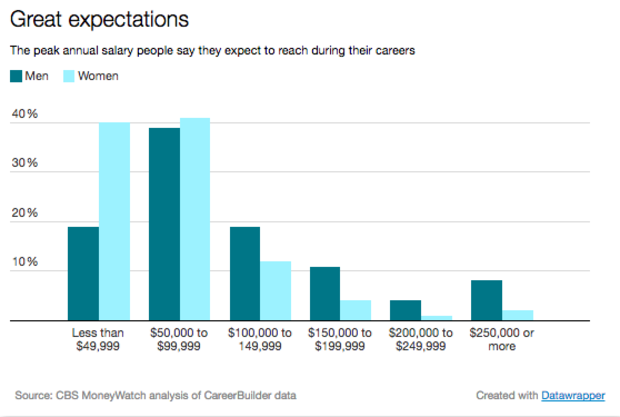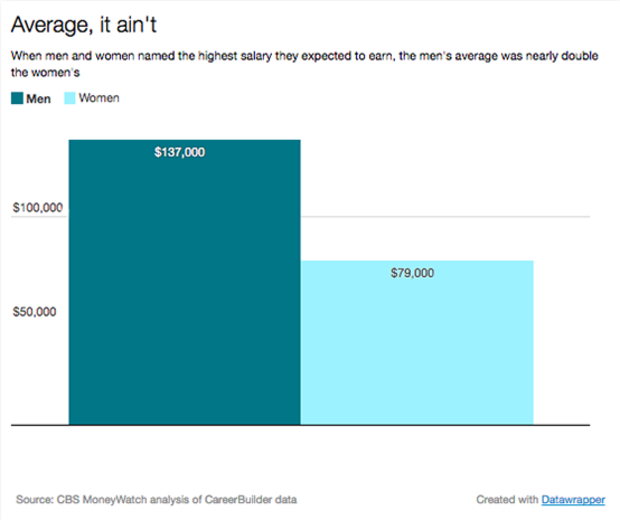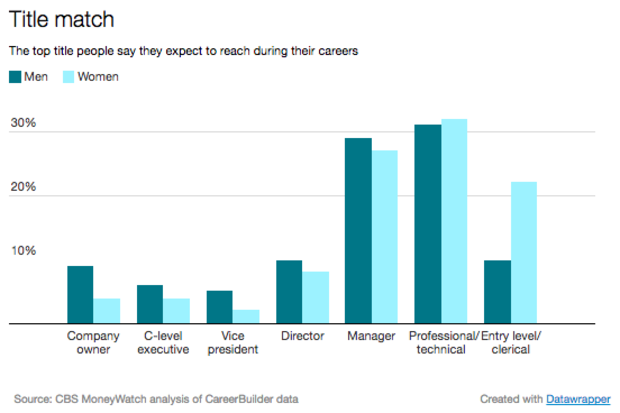When it comes to pay, men often dream bigger than women
The pay gap between male and female workers has been well documented. But there may also be an expectations gap in what men and women think they will earn during their careers.
According to a survey released Friday by job services website CareerBuilder, men and women have wildly different expectations for how much they will eventually earn. When asked to estimate the highest annual salary they thought they would earn during their careers, more than twice as many men than women said they expected to make more than $100,000.
Some 44 percent of men thought their salaries would top out at more than $100,000, while only 20 percent of women did the same. About 12 percent of men expected a peak salary of $200,000 or more; just 3 percent of women gave that figure.
For perspective, only about 14 percent of people who worked full-time in 2015 earned over $100,000, according to Census data.
The upshot: Men’s average “peak” salary was nearly double the women’s, CareerBuilder found.
Those divergent expectations are not surprising considering that women are often paid less than men for comparable work and tend to cluster in lower-paid occupations, said Ariane Hegewisch, program director of employment and earnings at the Institute for Women’s Policy Research.
“You dream in context, and the context is what you observe others making,” she said.
Although there is debate over just how much less women earn than men, most economists put the figure at around 80 cents to the dollar for comparable work. That gap has narrowed only modestly in recent decades, from 75 percent in 1997.
Women who think about their own careers often use their mother or other women as a reference point, rather than men, who are often in higher-paying fields.
A similar pattern was evident when men and women were asked the top title they expected to achieve in their career, though the difference between the sexes was smaller.
It’s unclear if the CareerBuilder data focused on a specific age group -- if it includes many women farther along in their careers, especially those with families, it could reflect reality more than expectations. However, even lowered expectations can become a self-fulfilling prophecy, Hegewisch said.
“So much of how much you earn, particularly in the higher-paying jobs, is influenced by negotiation and you past salary history. And not dreaming big also means you negotiate less.”






